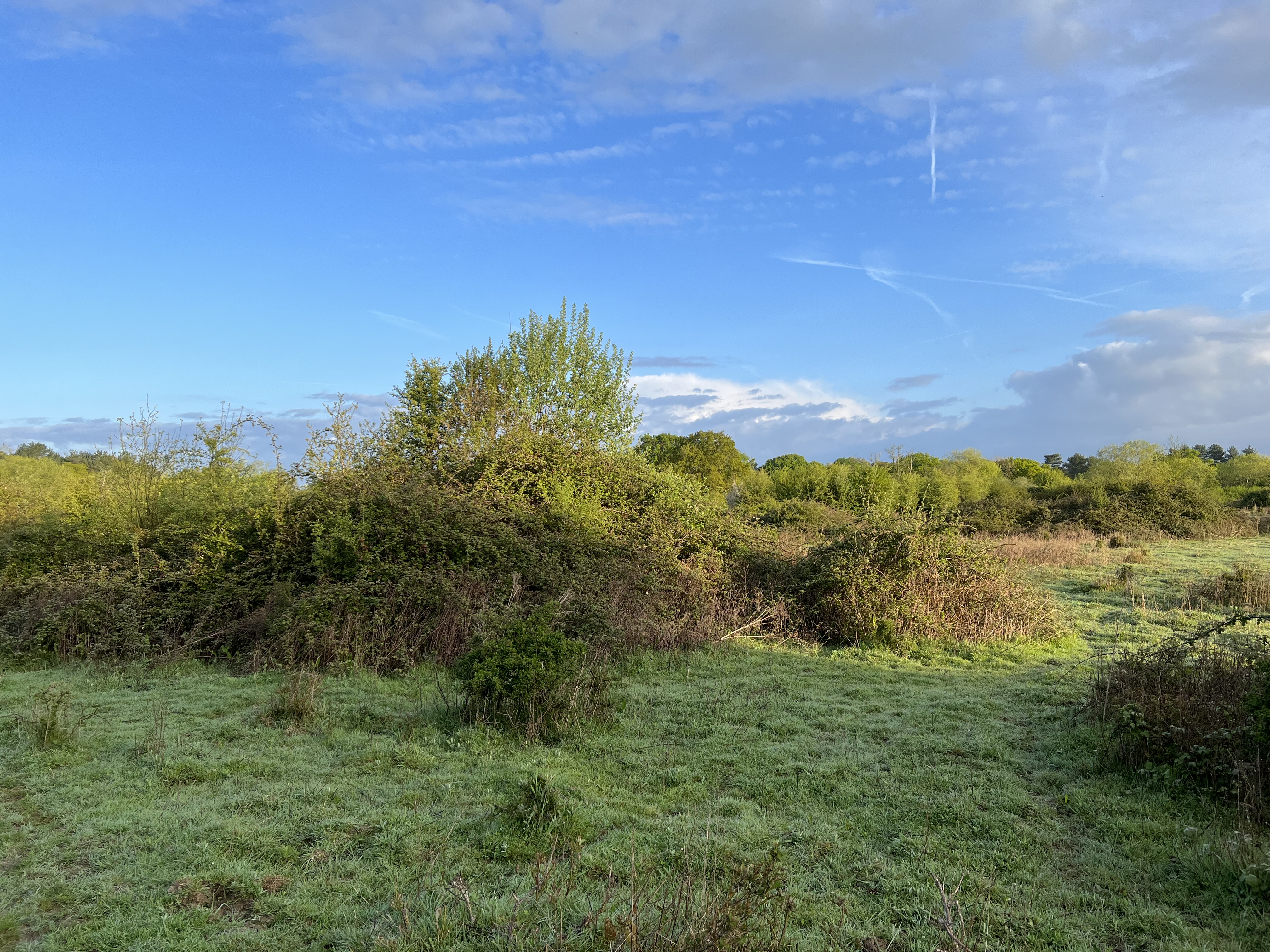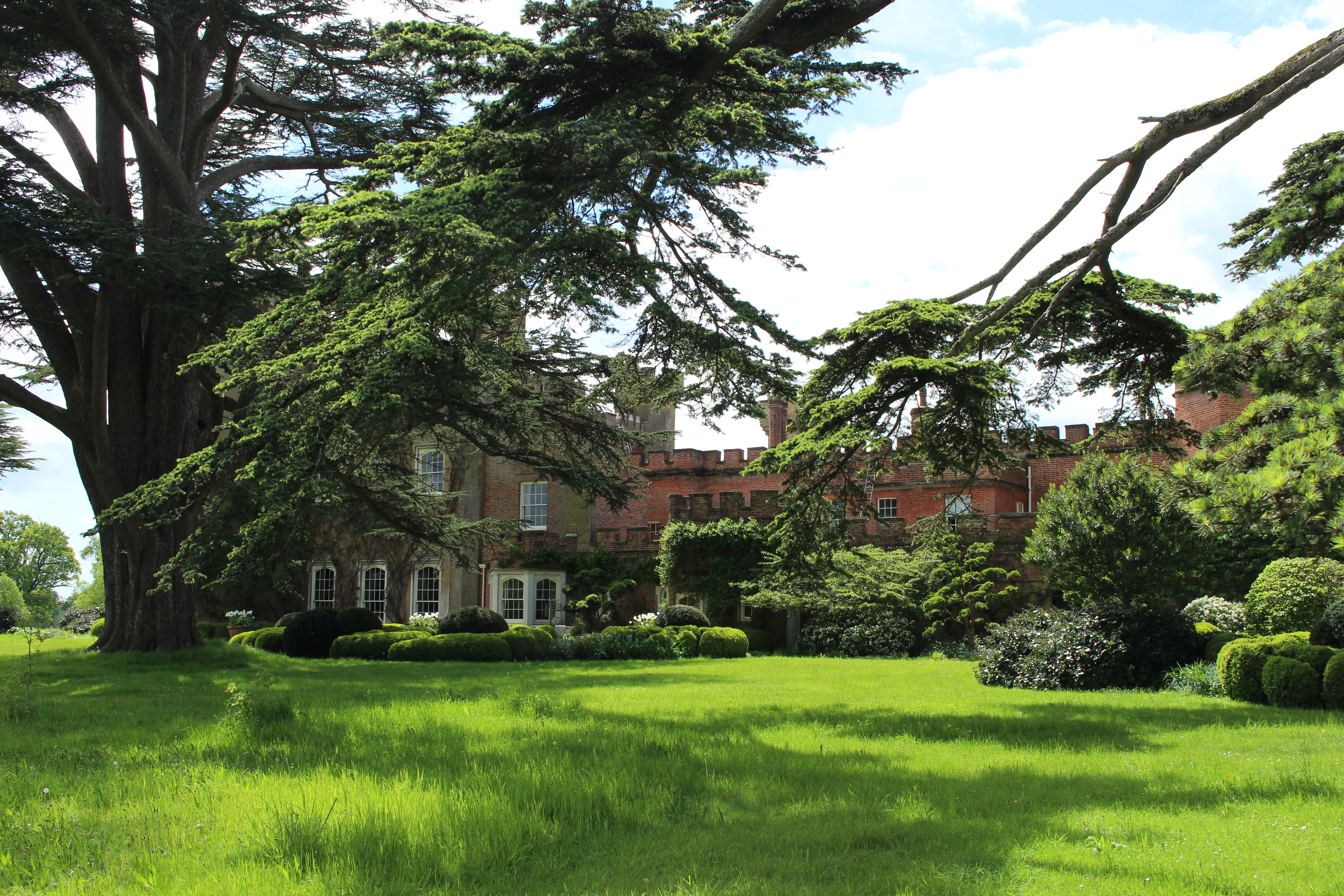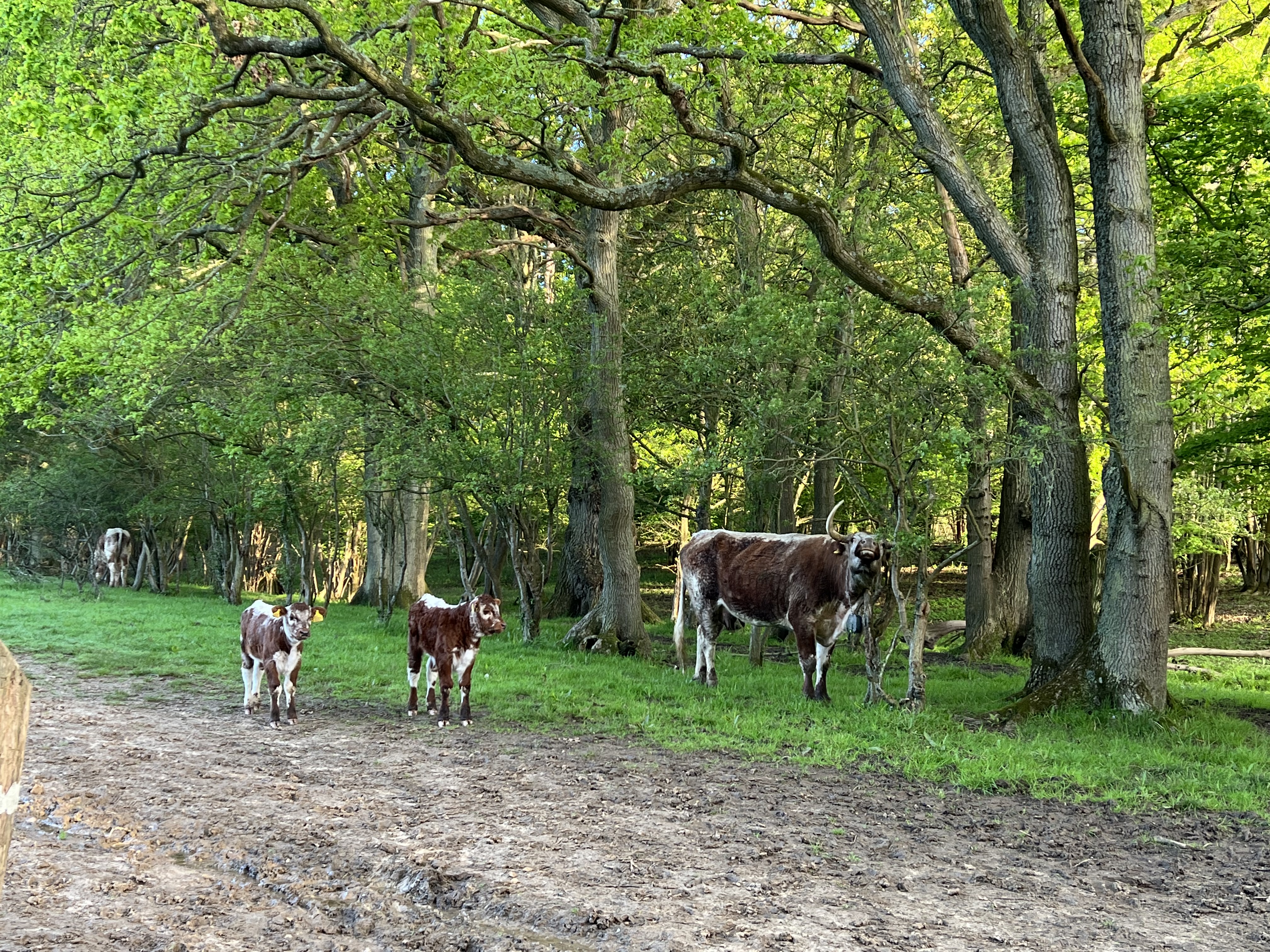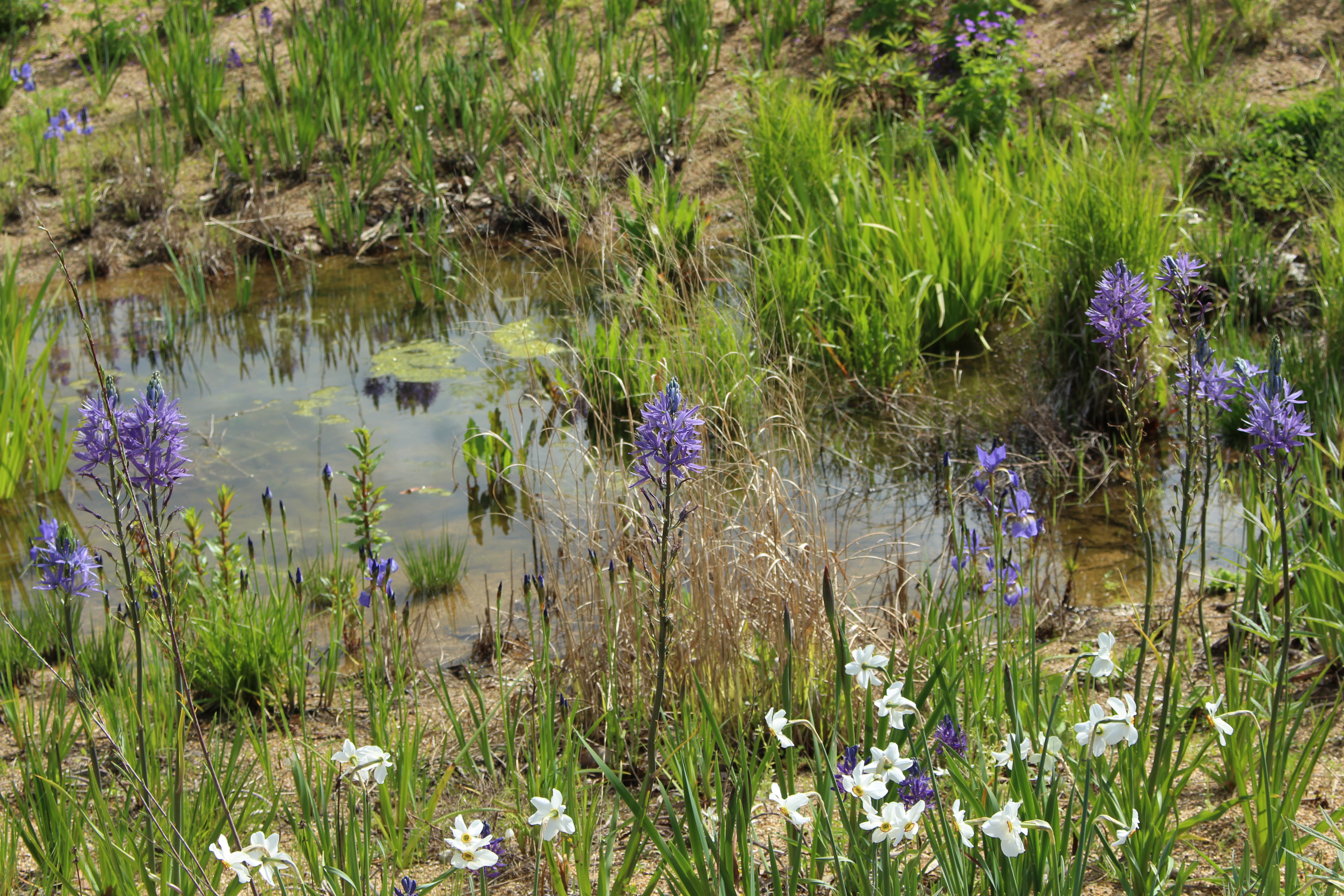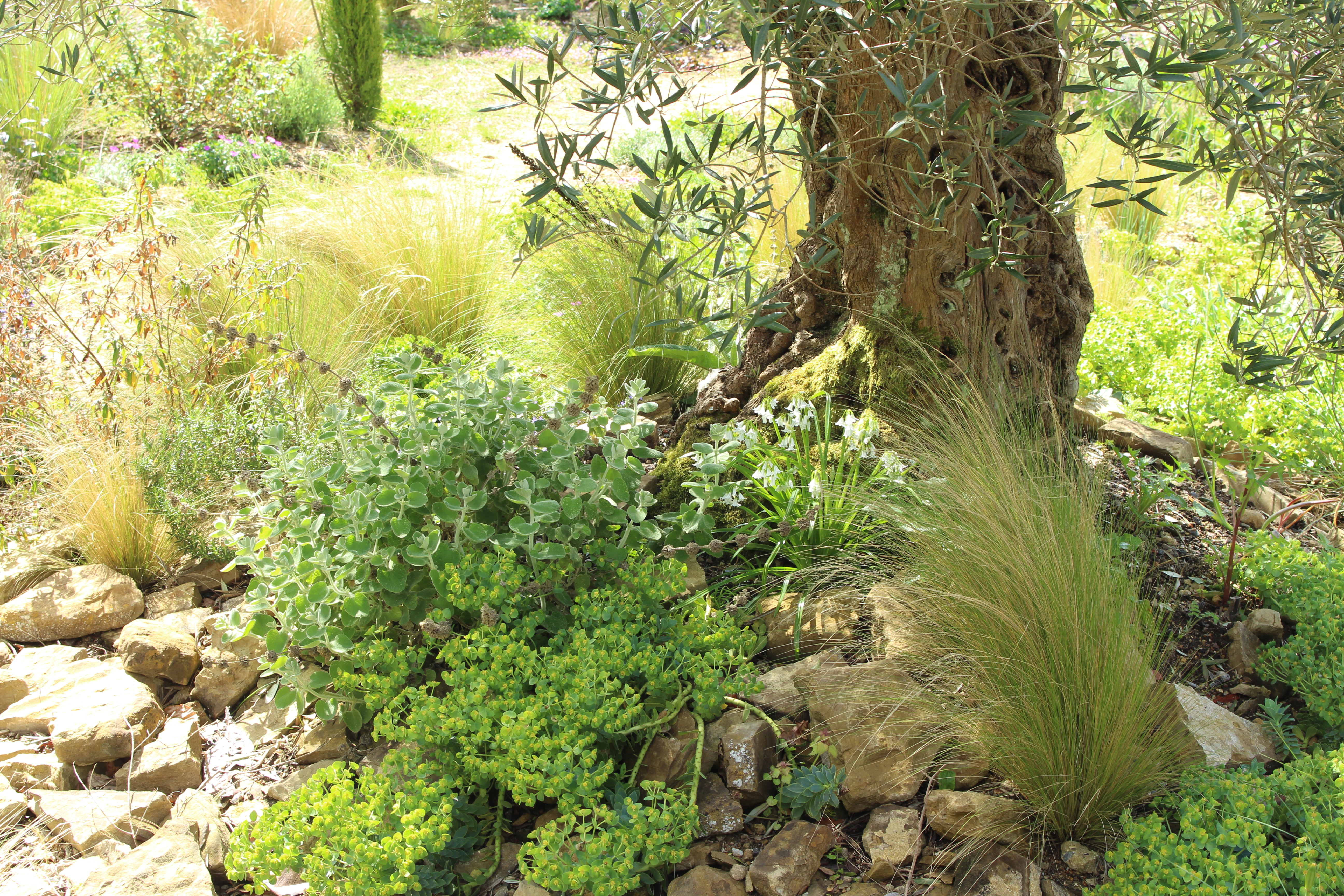In May we were lucky enough to visit The Knepp Estate and witness the incredible progress they have made in the last twenty years. The 3,500 acre farm had a heavy clay soil with limestone rock underneath. The soil depleted by years of chemical fertilizers failed to yield crops sufficient to sustain the cost of production. With mounting debts the decision was made to sell the dairy herds, farm machinery and contract out the arable land.
In 2001 Knepp received Countryside Stewardship funding to restore Repton Park, 350 acres in the middle of Knepp which had been cultivated since the Second World War. In 2002 Charlie Burrell sent a letter of intent to Natural England detailing his vision to establish ‘A Biodiverse Wilderness Area in the Low Weald of Sussex’. It took until 2010 for the Knepp Wildland project to receive Higher Level Stewardship. But now as Professor Sir John Lawton says: “Knepp Estate is one of the most exciting wildlife conservation projects in the UK and indeed Europe. If we can bring back nature at this scale and pace just 16miles from Gatwick airport we can do it anywhere. I’ve seen it. It’s truly wonderful and it fills me with hope.”
The Knepp offers solutions to some of our most pressing problems, like soil restoration, flood mitigation, water and air purification, pollinating insects and carbon sequestration. Yet still Wilding or Rewilding is often dismissed as idealistic or sneered at as a notion for dreamers and tree huggers.
Opponents would argue that today’s increased cost of living and the war in Ukraine surely means we need to grow more food on our land and not return it to Nature. The fact is globally we produce enough food for 10 billion people, 2 billion more than the current population. But 1.3 billion tonnes of edible food a year is wasted. The problem therefore is not food production but food distribution. (www. fao.org)
The most pressing question concerns food security, and this is not about the quantity but how we produce it. Even with increased food production in the UK, there is enough land for agriculture and for rewilding. As The Knepp shows us the two work hand in glove. Far from being the enemy of farming, rewilding is its natural ally, securing its long term future. Rewilding will provide the life support system needed to increase yields and protect farming from the impact of climate change.
The Knepp now host workshops for those wishing to start both small and large scale re wilding projects. www.knepp.co.uk
There are many seasonal safaris on offer, walking and via vehicle: Butterfly, Beaver, Kingfisher, Mindfulness and the Art of Tracking to name but a few.
We managed to wake up in time for the Dawn Safari at 5.30 am, luckily spotting the herd of Dartmoor ponies on our arrival. Throughout the trek, the Dawn Chorus didn’t disappoint and both turtle dove and a nightingale were quite audible. Carefully negotiating some proud Long Horn cows with their newborn calves, we later stood with our backs to hedges whilst the main herd passed at some speed.
We learn that following the influence of Dr Frans Vera, Charlie soon introduced grazing animals to the Knepp, firmly believing that the two opposing forces of nature, animal disturbance and vegetation succession, generates biodiversity. The key to the planets survival.
The trampling, puddling, rootling and snapping branches, together with their ability to transfer nutrients and disperse seeds over wide areas means that free roaming herbivores can stimulate diverse habitats.
A later and more relaxed morning start can be had with the Rewild Your Garden safari. The rewilded walled garden at Knepp was the former croquet lawn of the Knepp Castle and tries to maximise diversity whilst being as sustainable as possible. Created from crushed concrete when existing buildings were demolished and sand (rather than compost) from elsewhere on the Knepp.
It was then possible to create slopes and a water feature attracting reptiles and insects. The same principles are applied to the garden as the rest of the estate. Rewilding as Head Gardener, Charlie Harpur says is not just about abandoning the land. The key to creating a mosaic of different habitats is disturbance. In the absence of grazing herbivores, the gardener is needed to create different opportunities for wildlife. In the walled garden they sow seeds and take cuttings. But what is different is that they think about the role of each plant and what it can provide for wildlife. We learnt that we can all act for the good of nature and not against it.
If you are not able to visit The Knepp this year you can now read The Book of Wilding-A practical guide to Rewilding Big and Small by Isabella Tree and Charlie Burrell.
“There has never been a more concerning time to live on this earth, but equally there has never been a more exciting one. In recognising the miraculous ability of nature to restore itself, we can realise our own capacity to contribute to the rewilding of this planet our home.”
There are 23 million gardens in the UK, each one, regardless of size can play a crucial role in restoring wildlife and helping combat climate change.
Malcolm Thomas
Latest posts by Malcolm Thomas (see all)
- Get Your Garden Spring Ready - 8th April 2024
- Renewable Energy in the Private Rented Sector - 8th April 2024
- School Holiday Easter Cooking Fun - 11th March 2024

